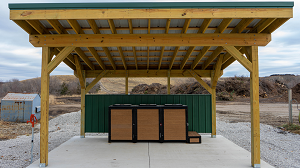 USCC members and staff made another trip to the US Capitol in April to move forward our federal legislative priorities: the COMPOST Act, the newly re-introduced Senate version of the Recycling and Composting Accountability Act and PFAS CERCLA exemption/research (see the related PFAS story later in this newsletter). USCC members and staff made another trip to the US Capitol in April to move forward our federal legislative priorities: the COMPOST Act, the newly re-introduced Senate version of the Recycling and Composting Accountability Act and PFAS CERCLA exemption/research (see the related PFAS story later in this newsletter).
We were joined by numerous members who either traveled to D.C. (Noel Lyons from McGill Compost, Christina Piocosta-Lahue from Vivaria, and Brian Orrock from Spotsylvania County) or "zoomed in” for a virtual meeting (Adam Brummond from ReturnCo, Mike Johnson from Heartland F/S, Shannon Pinc from Natureworks, Ginny Black from MNCC/Black Gold, and Marshall Hall from Natural Organic Process Enterprises).
We are still receiving feedback from those visits, and we thank all of our members. As constituents, they led the meetings, voicing eloquently and from their heart their reasons for being in the compost industry. "Those voices do so much more to move the needle than ours do as staff or lobbyists,” said Linda Norris-Waldt, advocacy director for USCC. "We are looking forward to more opportunities for this kind of engagement.” Indeed, in the coming weeks USCC is contacting specific members from districts where we are targeting a Member of Congress who can influence our legislative priorities for a virtual meeting. We have already worked with Steve Callis of Missouri and Wayne Koeckeritz of Tennessee.
 The compost industry continues to be drawn into remediation of a suite of chemicals more commonly known as PFAS (perfluoroalkyl substances) that has innocently plagued some composts, despite our concerns about the dangers to human health and the wish not to have it pollute our product. However, we are considered passive receivers because PFAS enters our compost stream, through food, non-compostable food packaging (BPI has forbidden intentional PFAS in its certified products), biosolids—even rainwater and upstream sources. The compost industry continues to be drawn into remediation of a suite of chemicals more commonly known as PFAS (perfluoroalkyl substances) that has innocently plagued some composts, despite our concerns about the dangers to human health and the wish not to have it pollute our product. However, we are considered passive receivers because PFAS enters our compost stream, through food, non-compostable food packaging (BPI has forbidden intentional PFAS in its certified products), biosolids—even rainwater and upstream sources.
Due to this, some states are considering regulation that would disallow compost to be spread on farmland, even though there is no quantified research to determine what levels of PFAS might be considered unsafe for farmland.
WE WILL NEED YOUR HELP to support two initiatives that would help our compost manufacturers survive this threat that hangs over our small but thriving industry:
- Legislation to ensure composters are exempted from EPA enforcement of CERCLA, also known as Superfund, a proposal to be decided later this year that would require payment from “covered” entities-which includes composting right now. Sen. Cynthia Lummis would exempt our industry, and we ask you to go to the Compost Action Center to ask your federal legislators to support this bill.
- PFAS Research: Watch for a Compost Action Center campaign to help us push for funds for PFAS Research. For your information, our research asks can be found here.
Thank you for your support!
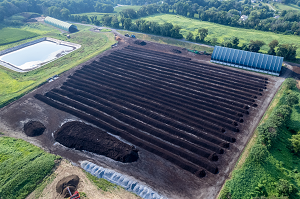 Laurel Valley Soils has been producing STA Certified Premium Compost for almost two decades, and every year we look forward to International Compost Awareness Week (ICAW) as a great opportunity to engage with and educate our local community. Laurel Valley Soils has been producing STA Certified Premium Compost for almost two decades, and every year we look forward to International Compost Awareness Week (ICAW) as a great opportunity to engage with and educate our local community.
The STA Program helps compost manufacturers and compost users achieve successful projects. STA Compost manufacturers are required to test their compost on a regular basis by participating in testing by a certified lab which generates a CTDS (Compost Technical Data Sheet) listing the results. The CTDS provides the clarity to know if the compost will meet the specifications of the project. It also provides confidence that the test results generated are accurate and consistent as the testing labs undergo proficiency testing by the STA Program.
For the past several years, to celebrate ICAW, we have brought a dump trailer full of compost to the opening day of our local growers market. It is a BYOB event (buckets, of course!), and our community members can fill up their buckets for free and provide a donation to our local food bank if they choose to do so. As we are filling buckets, it gives us time to answer questions about STA Certified Compost and compost use in general.
Our customers feel a level of comfort when selecting our STA Certified Premium Compost for their projects. Because if it isn’t STA Compost, what is it?
 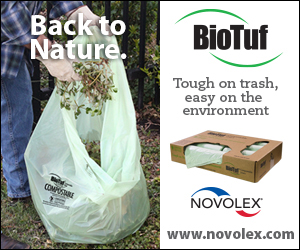
|
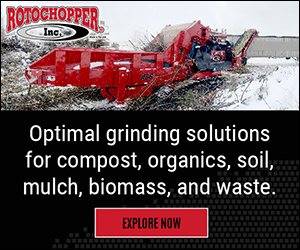
|

Recognizing the interest in this topic, CREF and USCC are holding a joint webinar on PFAS and Compost Research: The Importance of Informed Regulatory Decision-Making. It will be held on May 24 at 2:00 p.m. ET. Bryan Staley, President and CEO of the Environmental Research and Education Foundation (EREF) will provide an overview of research and how PFAS affects the compost industry.
Ian Pepper, a Regents Professor at the University of Arizona, will summarize a study on PFAS in soils that resulted in an Arizona county withdrawing a proposed ban on spreading biosolids, and Andrew Carpenter, founder of Northern Tilth, LLC, an environmental consulting firm, will discuss regulatory approaches and impacts. You can learn more or register HERE
 One of the goals of the USCC is to expand industry-wide professional development through education and certification for compost producers and professional specifiers. How do we accomplish this? Through programs such as USCC Certification, Compost University™ and Career Center. We believe our members and member companies can make an impact on the industry through education and certification. One of the goals of the USCC is to expand industry-wide professional development through education and certification for compost producers and professional specifiers. How do we accomplish this? Through programs such as USCC Certification, Compost University™ and Career Center. We believe our members and member companies can make an impact on the industry through education and certification.
The USCC Certification Commission offers two credentials, the Certified Compost Operations Manager™ (CCOM™), and the Certified Composting Professional™ (CCP™).
A CCOM™ understands all aspects of composting operations, from feedstock arrival through marketing and uses, including environmental controls and the larger context of organics recycling and waste management. A CCP™ has a similar knowledge base as a CCOM™ but has gained that through a variety of work and training experiences, instead of at a compost manufacturing facility. Consultants, equipment providers, educators, program managers and even regulators could all earn a CCP™.
Certification makes an impact! To learn more about the USCC Certification process and continuing education for you or your employees, contact Teri Sorg-McManamon.
By: Charles Duprey – Naturcycle
What Role Does Compost Play in Green Infrastructure?
Green infrastructure is a comprehensive term used primarily to describe natural solutions to stormwater management. Green infrastructure may include green roofs, bioretention soils, rain gardens, or compost blankets used for erosion control and slope stabilization. A key component for success of all these applications is the use of compost, whether used directly or used indirectly as a component of a soil or green roof media blend. With increasing adoption of green infrastructure to solve stormwater challenges, sourcing the most appropriate high-quality compost for each purpose is more important than ever. The good news is that there are nationwide standards that can benefit any green infrastructure project: the Test Methods for the Evaluation of Compost & Composting and the USCC's Seal of Testing Assurance Program.
Development of the TMECC & Benefits of the STA Program
The USCC started in the early 1990’s as an industry group composed of compost producers, technology providers, equipment manufacturers, municipal entities, and research scientists. These stakeholders came together to improve composting processes, promote compost uses, and market compost products. The USCC and the non-profit Compost Research & Education Foundation (CREF), worked closely with the Environmental Protection Agency (EPA) and the U.S. Department of Agriculture (USDA) to develop the Test Methods for the Evaluation of Compost & Composting (TMECC) after reviewing decades of existing research. Structured similarly to the commonly used American Society of Testing & Materials (ASTM) standards, the TMECC provides a laboratory manual for all the testing methods related to the evaluation of compost. Specifications based on these universal standards can be used from New York to Texas, supporting green infrastructure applications nationwide.
With the leadership of USCC’s chapters, this year so far has seen a mixed bag of legislation benefiting compostable labeling contamination reduction, Extended Producer Responsibility bills that include the compost industry, compost use, and on-farm composting. Some wins and some partial wins were recorded as legislatures reached their Sine Die (ending).
Colorado: The session that just ended had the COCC heavily invested in the work on these two successful bills:
♦ SB253 Standards for Products Represented as Compostable disallows, as of January 2024, any producer of a plastic product not certified compostable from using words, labeling, or images to imply compostability – giving teeth to the ability to stop “look alike” products from contaminating the composting stream. Product certified by a third-party organization must show the logo, display the word compostable on all products except those exempted as “small,” and use green labeling or striping to make it easily recognizable by consumers.
Don’t miss this quarter’s Chapter Bulletin to see what our 15 chapters are accomplishing!
Visit www.compostingcouncil.org/statechapters
(Photo: FLCC Legislative Tour in Tallahassee) |
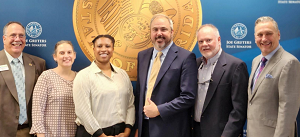 |
Thank you for your continued support of the US Composting Council. This letter is a reminder that your membership expires July 1! We want to be sure you don’t lose any of the benefits that can help your success and the expansion of our industry.
I wanted to take a moment to express my gratitude for your continued support and membership in the U.S. Composting Council. The promotion and advancement of composting is only possible through you and your membership. I’m writing to let you know about what your membership dollars have accomplished this year and about a new dues policy tied to the Consumer Price Index (CPI).
This year we have hosted nine webinars, published 12 newsletters, and hired additional staff to provide more services such as the career center and expanded Compost U. We held our largest-ever gathering of the compost industry anywhere in the world (COMPOST2023); lobbied Congress for the bills that would include compost infrastructure, federal data collection and assessment of our industry, and scientific research on PFAS. On the back of this letter, you will see a timeline of industry accomplishments over the past 12 months.
 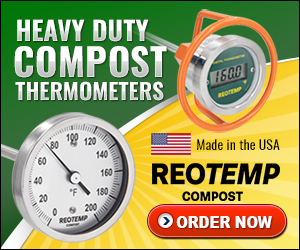
|

The Young Professionals are excited to invite you to our upcoming Monthly Happy Hour, taking place virtually on June 7 at 5:00 p.m. ET. The event will be co-hosted by the US Composting Council's Director of Professional Development and Certification, Teri Sorg-McManamon.
Join us to learn about the new tools offered by the US Composting Council to foster professional development, including industry certifications, Compost University, the newly launched Career Center, and more!
And that's not all! This virtual happy hour will feature a special cocktail of the month, The Composter—a refreshing grapefruit ginger spritzer. For those who prefer a non-alcoholic option, the zero-proof cocktail is just as delicious.
Click the button below to learn how to make The Composter.
 The Young Professionals Mentorship Program is now accepting applications for both mentors and mentees, but don't wait too long. The program will stop accepting applications after Monday, May 15, 2023 at 11:59 p.m. ET. The Young Professionals Mentorship Program is now accepting applications for both mentors and mentees, but don't wait too long. The program will stop accepting applications after Monday, May 15, 2023 at 11:59 p.m. ET.
The annual initiative is designed to connect young professionals with seasoned experts in the composting industry. Mentees have the opportunity to gain valuable insights, knowledge, and experience while building a strong professional network within the industry.
Our mission is to foster the growth and development of the next generation of compost industry leaders by encouraging innovation, highlighting achievements, and providing networking opportunities for sustainability entrepreneurs and educators.
If you are interested in becoming a mentor and inspiring young professionals in the industry, we encourage you to apply through our webpage. Mentees can also apply through the same webpage, which can be found here: https://www.compostingcouncil.org/page/MentorYoungProfessionals.
If you have any questions, please do not hesitate to reach out to Hessa Al Maghlouth, Administrative Assistant at hessa@compostingcouncil.org. We look forward to hearing from you soon!
 We have updated the Young Professional webpage to give it a fresh new look. You can check it out here: https://www.compostingcouncil.org/ypg We have updated the Young Professional webpage to give it a fresh new look. You can check it out here: https://www.compostingcouncil.org/ypg
Our new webpage is your one-stop shop for learning more about the Young Professionals Program, sub-committees, and connecting with us virtually or in-person on social media or at one of our many fun events!
Our favorite thing about the webpage is the “YPs through the Years” section, where we feature pictures and memories of past events from our committee members. If you have any picture submissions that you would like us to include, please email Hessa Al Maghlouth, Administrative Assistant at hessa@compostingcouncil.org.
You can also find all of the many ways you can connect with the YP Group such as the Monthly Happy Hours, quarterly committee calls, USCC membership scholarships, and more. To view a full list of upcoming YP events, you can follow the link to USCC Community Calendar: https://www.compostingcouncil.org/events/
We hope you enjoy our new webpage and that it provides you with valuable information about our program. Please do not hesitate to reach out to us if you have any questions or feedback.
Top: Conceptual model of Fairless Hills (Falls Township, PA) facility. Images courtesy McGill Environmental Systems of NC
Biocycle
Almost three years after submitting its application to the Pennsylvania Department of Environmental Protection (PA DEP) for a composting permit to process a range of materials, including food waste, biosolids, and yard trimmings, McGill Environmental held a groundbreaking to begin construction of a 130,000 tons/year facility in Fairless Hills, located in Falls Township, Pennsylvania. “McGill received an individual permit from PA DEP to compost a variety of feedstocks,” explains Kate Sullivan, a project manager at McGill. “The facility is being built on a 15-acre site leased from WM, which has been composting yard trimmings there for many years. In addition to the indoor facility, McGill will continue composting the yard trimmings already going to the site as well as additional amendment materials from municipal and commercial sources.”
“If you can’t measure it, you can’t improve it”
USCC’s DEIA Committee has been collecting information on gender, race, age and ethnicity from new registrants for programs, events, and membership since 2022.
However, for the hundreds of USCC members already in our system, we have been searcing for a non-intrusive way to collect this information. It is important to have so that we can set goals for additional access, equity, diversity and inclusion opportunities, which can be demonstrated by growth in participation by underserved communities and BIPOC (Black, Indigenous and People of Color) in our industry and programs.
First and foremost, we believe in hiring the right people, so if the “about you” fits but “about the role” is not a perfect match please still reach out! As our PE PM, your role will be project managing and providing design oversight as our team designs industrial ASP composting facilities with a focus on public sector work. This is a highly interactive role, requiring active engagement with clients, subcontractors, internal team members and other project stakeholders. Additionally, it requires a strong mechanical aptitude with an eye for detail and well-rounded understanding of engineering principles.
• Full time hourly paid position
• Licensed professional engineer in the state of Washington
• 3+ years engineering project management
• Experience reading and responding to RFP’s
• Strong written and verbal communication skills
• Organized with a great attention to detail
• Experience designing transfer stations, stormwater systems, concrete pads and retaining walls
and or HVAC systems
 The next scheduled Compost Operations Training Course (COTC) will be held July 31 – Aug. 4 in Camden County, New Jersey. Registration is open and an Early Bird discount is being offered until June 19. You can learn more or register HERE . The next scheduled Compost Operations Training Course (COTC) will be held July 31 – Aug. 4 in Camden County, New Jersey. Registration is open and an Early Bird discount is being offered until June 19. You can learn more or register HERE .
If COTC registration fees present a financial challenge, the new Cary Oshins’ Training Scholarship application will be available later this month. This scholarship will offer financial assistance to attend an upcoming COTC. The first scholarship(s) will be awarded for the New Jersey COTC. CREF is still accepting generous donations to this scholarship fund. The more donations received, the more scholarships that can be offered throughout the year. You can donate to the Cary Oshins’ Training Scholarship HERE.
 On May 8, Laurel Valley Soils, in Landenberg, PA graciously hosted the official start of ICAW 2023. The kick-off event included a visit to Laurel Valley's compost site as well as a tour of a local mushroom farm. Laurel Valley Farms is located in the official “Mushroom Capital of the World” and is the largest single-site mushroom composting operation in North America. They supply compost to grow 11% of the mushrooms grown in the US. CREF would like to thank Laurel Valley Soils for hosting the event as well as Rep. Christina Sappey for attending and sharing the importance of the compost industry to Chester County, PA. Thank you also to everyone else who attended, which included representatives from U.S. Rep. Chrissy Houlahan’s office, the American Mushroom Institute, the EPA, and many ICAW volunteers and ICAW Committee members. On May 8, Laurel Valley Soils, in Landenberg, PA graciously hosted the official start of ICAW 2023. The kick-off event included a visit to Laurel Valley's compost site as well as a tour of a local mushroom farm. Laurel Valley Farms is located in the official “Mushroom Capital of the World” and is the largest single-site mushroom composting operation in North America. They supply compost to grow 11% of the mushrooms grown in the US. CREF would like to thank Laurel Valley Soils for hosting the event as well as Rep. Christina Sappey for attending and sharing the importance of the compost industry to Chester County, PA. Thank you also to everyone else who attended, which included representatives from U.S. Rep. Chrissy Houlahan’s office, the American Mushroom Institute, the EPA, and many ICAW volunteers and ICAW Committee members.
BY NATALIE WALLINGTON
The City of Olathe’s food waste dropoff location, the first in its new composting pilot program, is seen at the city’s multipurpose waste disposal site at 1100 N. Hedge Lane. City of Olathe
The city of Olathe will officially launch its compost dropoff program in the coming days, offering free disposal of food scraps to city residents at its multipurpose dropoff site at 1100 N. Hedge Lane.
Olathe residents can stop by during the site’s open hours to dispose of any food waste, from meat and bones to eggshells, dairy products, produce scraps and processed foods. Residents simply deposit their scraps into one of the three 95-gallon trash bins housed inside a wooden corral.
by WLOS Staff
The two newest Food Scraps Drop-Off program locations will open later this month at the Leicester and East Asheville libraries.
So far, 160 tons of food scraps have been diverted from the landfill and 2,300 households have registered to participate.
7
May 2023
|
The 2023 International Compost Awareness Week (ICAW) theme is truly a collaborative and international effort. This year, we teamed up with the International Compost Alliance (ICA) to select: For Healthier Soil, Healthier Food...Compost! The theme was chosen based on a serious world-wide issue that every nation, unfortunately, experiences: hunger.
|
16
May 2023
|
Presented by ReFED, the Food Waste Solutions Summit is the premier food waste event of the year, bringing together food businesses, funders, solution providers, innovators, policymakers, nonprofits, and more to drive the adoption of solutions to reach our collective goal of a 50% reduction in food waste by 2030. And this year, ReFED has expanded our programming to offer more engaging content than ever before!
|
18
May 2023
|
IRA members are invited to tour the East Side Recycling Center (a City of Iowa City facility) to learn about recycling programs in Iowa City, stormwater management efforts on site, and to check out their site partners helping to divert materials from the landfill:
Habitat for Humanity's ReStore
Friends of Historic Preservation's Salvage Barn
|
18
May 2023
|
Sustainable Spirits is a casual monthly gathering for the sustainability community organized by the North Carolina Composting Council. It started in June 2013 rotating around the Triangle and statewide through different establishments creating a space for people to gather, meet each other, and engage in fun and meaningful conversations in venues that support our environmental commitment to composting and as near zero waste as possible.
|

21
May 2023
|
Don't miss out on an exciting event filled with engaging workshops, keynote speakers, breakout sessions on the topics you want to hear about, and tours. The agenda for this year will cover topics such as the circular economy development center, organics diversion and processing, construction & deconstruction diversion and reuse, CDPHE resources, producer responsibility organization, zero waste, contamination education, organic legislative updates, C&D end markets, MRF technologies and more!
|
24
May 2023
|
The prevalence of PFAS and their effect on the composting industry is a subject needing research and attention. Join this webinar, jointly hosted by the US Composting Council and the Compost Research & Education Foundation, to learn about the issue, why it matters, and the current regulatory landscape surrounding it.
|
7
Jun 2023
|
Come learn how you can grow your career in the compost industry! At our June YP Happy Hour, co-host and USCC staff member Teri will give an overview of USCC professional certifications, Compost University, and the USCC career center.
|
20
Jun 2023
|
Who Should Attend? Environmental professionals from Local and State Governments, Private and Non-Profit Sectors, Program Managers, Recycling Coordinators, Directors, Managers, Consultants, Regulators, and those interested in the business and development of the recycling industry. Registration is OPEN! Register today and save.
|
28
Jun 2023
|
Join us for the inaugural Minnesota Biochar Summit on Wednesday, June 28, the premier Midwest meeting to build community and momentum around the current state of biochar knowledge, application, and production. At this event, participants of all knowledge levels will be immersed into the world of biochar. You will leave the summit with a clear knowledge of the process for creating biochar and its broad spectrum of uses.
|
1
Jul 2023
|
The USCC's Annual Conference and Tradeshow is the premiere professional meeting for composting, organics recycling, and related topics.
All events are IN-PERSON ONLY.
Submission Deadline: July 1st, 2023
|
31
Jul 2023
|
This 40-hr, 5-day course focuses on giving you the knowledge you need to run a successful composting facility, whether you’re just getting started or have been composting for a while. In addition to in-depth lectures, the course provides hands-on practice through indoor and outdoor activities as well as tours to local facilities, where the theories meet reality. From compost operators to environmental and agricultural consultants to local and state regulators; the Compost Operations Training Course is for anyone who wants quality instruction from leading composting professionals and educators on the art and science of commercial scale compost production and marketing.
|
6
Feb 2024
|
Online exhibitor registration opens on April 3. Contact Green Fern Events at emily@greenfernevents.com. For sponsor interest, contact emily@greenfernevents.com. Call for Presentations: May 1 to June 30. Early Bird Registration Opens: Sep. 1
|
|

 USCC members and staff made another trip to the US Capitol in April to move forward our federal legislative priorities: the COMPOST Act, the newly re-introduced Senate version of the Recycling and Composting Accountability Act and PFAS CERCLA exemption/research (see the related PFAS story later in this newsletter).
USCC members and staff made another trip to the US Capitol in April to move forward our federal legislative priorities: the COMPOST Act, the newly re-introduced Senate version of the Recycling and Composting Accountability Act and PFAS CERCLA exemption/research (see the related PFAS story later in this newsletter).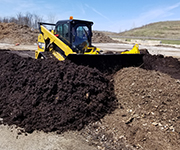

 Laurel Valley Soils has been producing STA Certified Premium Compost for almost two decades, and every year we look forward to International Compost Awareness Week (ICAW) as a great opportunity to engage with and educate our local community.
Laurel Valley Soils has been producing STA Certified Premium Compost for almost two decades, and every year we look forward to International Compost Awareness Week (ICAW) as a great opportunity to engage with and educate our local community.

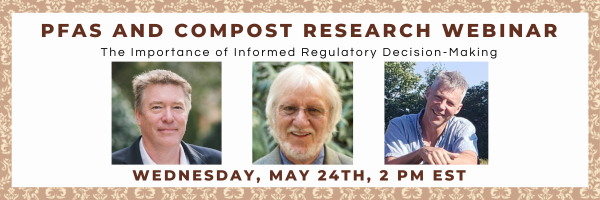
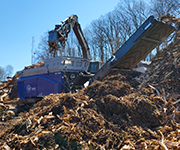
 One of the goals of the USCC is to expand industry-wide professional development through education and certification for compost producers and professional specifiers. How do we accomplish this? Through programs such as USCC Certification, Compost University™ and Career Center. We believe our members and member companies can make an impact on the industry through education and certification.
One of the goals of the USCC is to expand industry-wide professional development through education and certification for compost producers and professional specifiers. How do we accomplish this? Through programs such as USCC Certification, Compost University™ and Career Center. We believe our members and member companies can make an impact on the industry through education and certification. 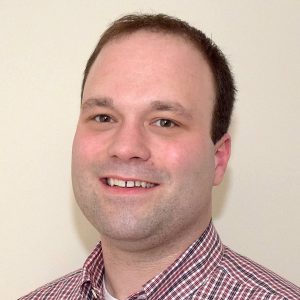
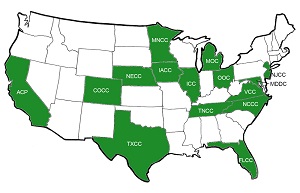



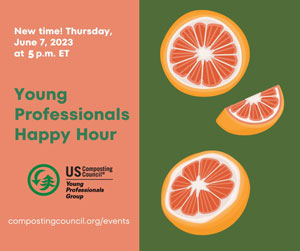
 The Young Professionals Mentorship Program is now accepting applications for both mentors and mentees, but don't wait too long. The program will stop accepting applications after Monday, May 15, 2023 at 11:59 p.m. ET.
The Young Professionals Mentorship Program is now accepting applications for both mentors and mentees, but don't wait too long. The program will stop accepting applications after Monday, May 15, 2023 at 11:59 p.m. ET. We have updated the Young Professional webpage to give it a fresh new look. You can check it out here:
We have updated the Young Professional webpage to give it a fresh new look. You can check it out here: 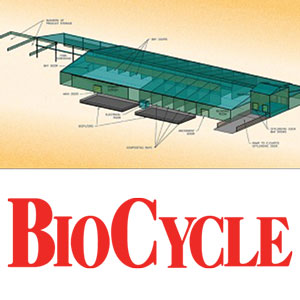
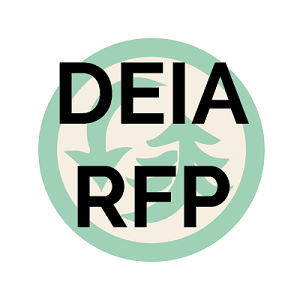
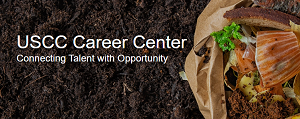
 On May 8, Laurel Valley Soils, in Landenberg, PA graciously hosted the official start of ICAW 2023. The kick-off event included a visit to
On May 8, Laurel Valley Soils, in Landenberg, PA graciously hosted the official start of ICAW 2023. The kick-off event included a visit to 